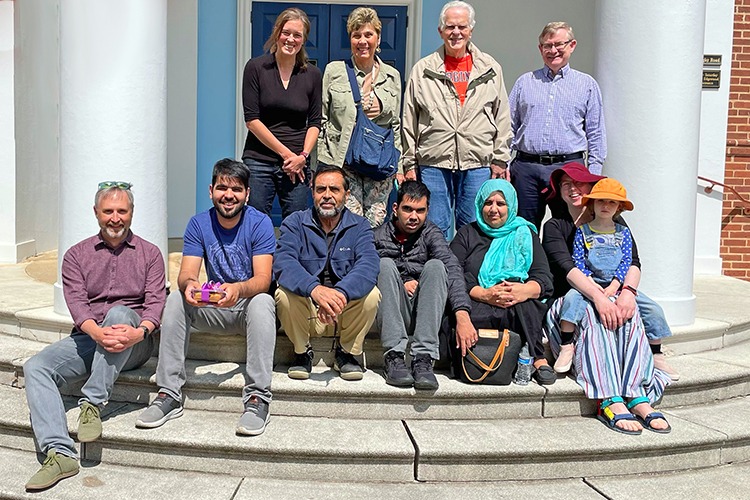
Front Row: Breck Gastinger, Nasrat, Haji Muhammad, Hikmat, Saeeda, Regina White, and her daughter
Second Row: Lara Gastinger, Sharon Baiocco , Burnie Davis, Rev. Tim Temersen
May 10, 2023
Sharon Baiocco
On a beautiful May morning, Rev. Tim met with the Afghan family of four whom our congregation has been assisting through the International Rescue Committee (IRC) to give them a tour of our grounds and sanctuary. The Ghaznavis came to the United States in August 2021 when they were rescued from the Taliban in Afghanistan. Five months later they were “settled” in Charlottesville with our help. A team of ten UU “settlers” gathered a complete list of furnishings for their temporary home near UVA Hospital, where health care was provided to their 17-year-old son Hikmat, who suffers from epileptic seizures as a result of a Taliban bomb.
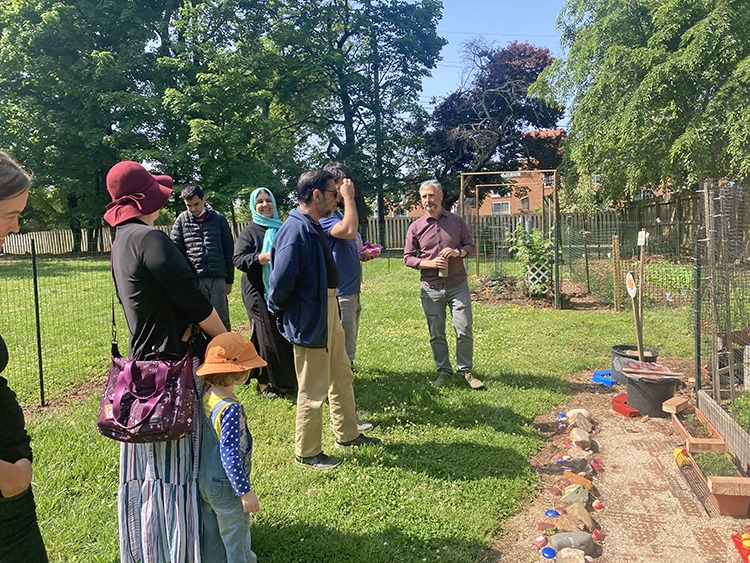
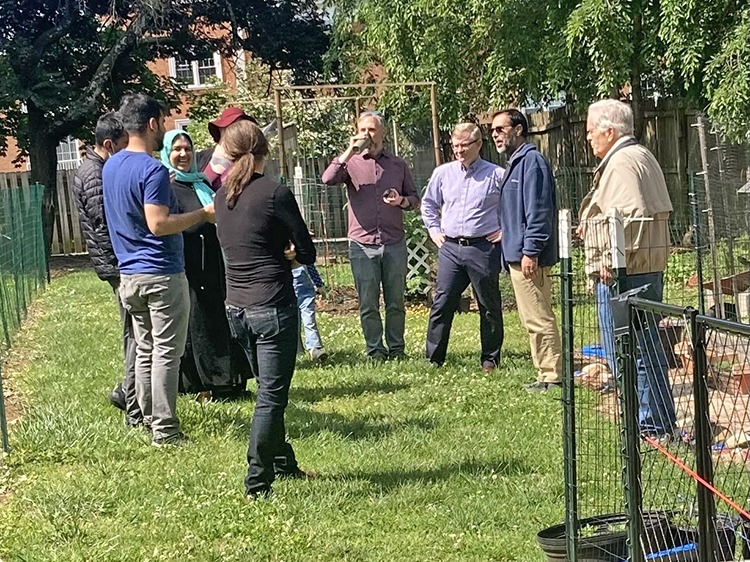
The family is headed by Haji Mohammad, 65, a former commander in the Afghan forces in Kabul who worked for the U.S. State Department for 19 years, and Saeeda, 52. Fortunately, their other son, Nasrat, now 24, is fluent in English, Pashto, and Dari, their native language, and he has a university education, so the family of four is managing life in America quite well now. Their immigration status, however, is very tentative. The IRC has helped them apply for Special Immigration Visas (SIVs) and Nasrat, an adult child over 21, has had to apply for asylum. They have been granted work permits through August 2023, when their legal status as “parolees” will expire unless Congress acts to pass the Afghan Adjustment Act. The Ghaznavis have three other adult children and five grandchildren whom they want to join them here. Their oldest son and his wife and three children have escaped to Dubai. They are all professional families, but those who remain in Kabul cannot work and must stay in hiding.
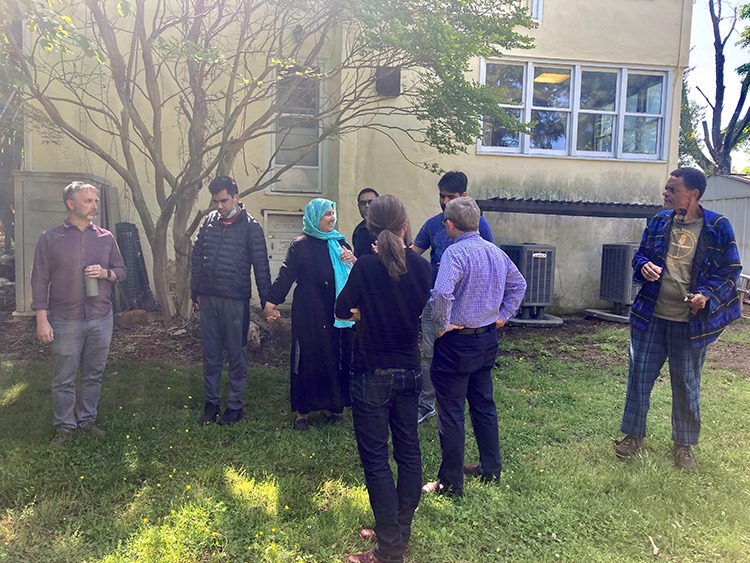
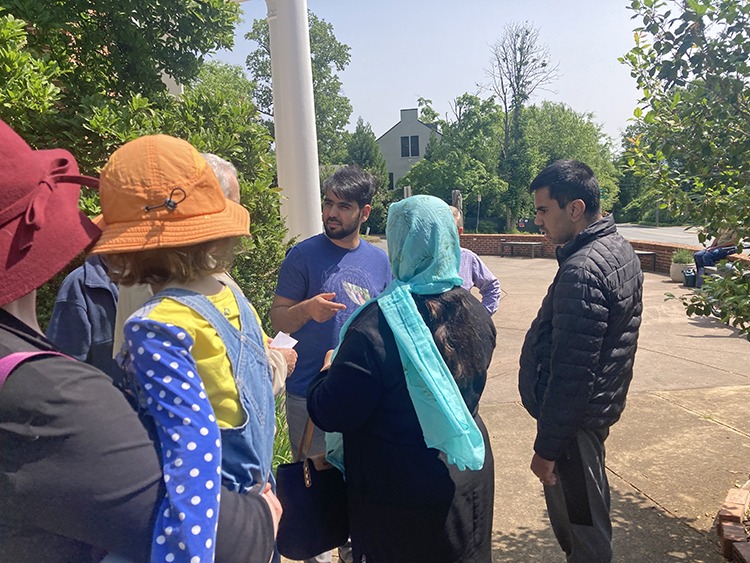
Rev. Tim and a group of UUs who had served as “mentors,” including Breck and Lara Gastinger, Burnie Davis, Regina White, and Sharon Baiocco first showed the family our vegetable and native plant gardens. Breck told them about programs for immigrants locally that provide garden space, and they seemed excited about doing that next season. We showed them our sanctuary, and Nasrat asked what that word meant. Rev. Tim explained, “Safe place,” “a place for prayer and meditation,” and Saeeda said that she prays for our government because it has done so much for them and especially for Hikmat, who goes to school now in Albemarle County. Our symbols of different faiths in the rear of the sanctuary, and especially the sign in Arabic, welcoming them, made Haji Mohammad smile. When they toured the lower level, Saeeda said how she would like her grandchildren to play there, and they nodded in understanding when Lara pointed out the sign for “Neighboring Faiths,” a religious education class she teaches. Outside on the steps of our sanctuary, Rev. Tim explained the meaning of our spire, and how all faiths come together and point to the same truths. Saeeda said that was very important.
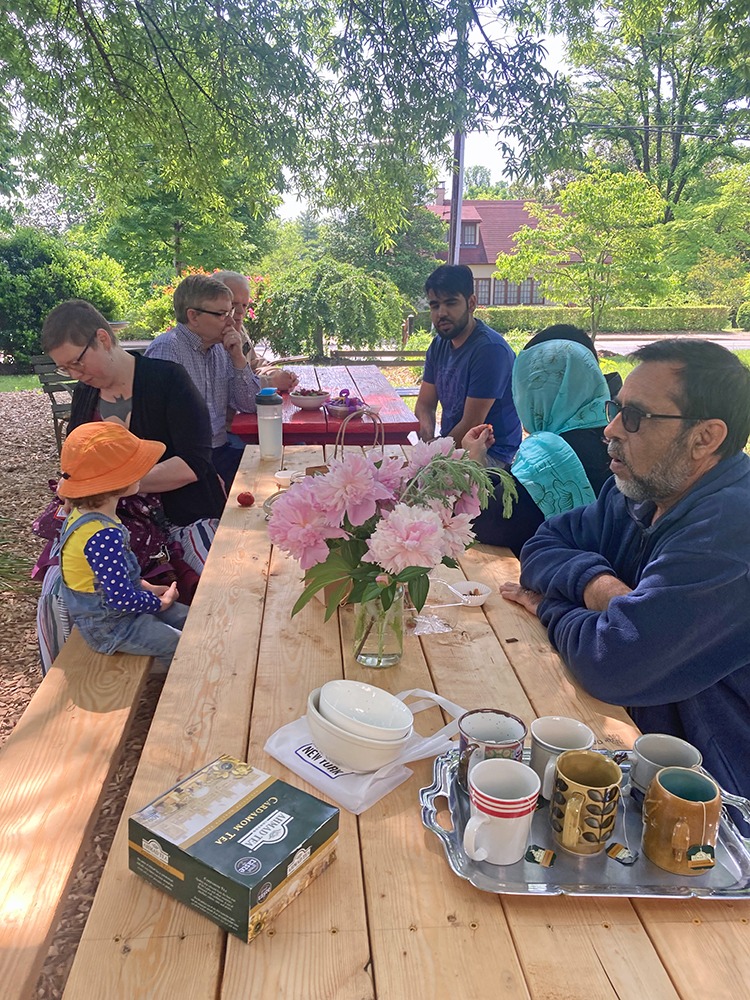
In the Remembrance Garden, Sharon explained that some UUs choose to have their ashes buried nearby, and this is a place to remember them. Saeeda said that in Afghanistan, people are buried in a special place, with a marker and their name, and Sharon told her that is true in the U.S. also, and those places are called cemeteries. The tour ended at the picnic tables in front of Summit House with tea, strawberries, and nuts, a traditional Afghan snack for guests. The family asked Nasrat to tell us again and again how grateful they are for all of our help. “When we came here, we knew nothing about life in America,” Nasrat said. “Family is very important to us, and you people are our family here.”
